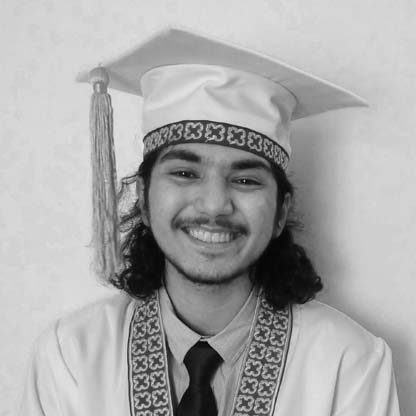
MOAWWIZ ARSHAD SHAHEEN
Aspiration Statement
I want to pursue a masters degree in Data Analytics for Public Policy. I then want to return to Pakistan to help devise and implement comprehensive data-driven policies in the private and public sectors. I am also interested in the Digital Humanities and Computational Social Sciences.
Core Skills
- Qualitative & Quantitative Research
- Monitoring and Evaluation
- Program Planning
- Excellent Writing & Proofreading Skills in English
- Agent Based Modelling
- Policy Making and Analysis
- Policy Proposal Writing
- Agent Based Modelling, C#, C++, Python, Unity
Academic Awards / Achievements
- HU TOPS 100% Scholarship
- Presented original research at the 6th Karachi Conference
Experience
Leadership / Meta-curricular
- Brain Hack Computer Science Club - Director of Events
- Habib University - Orientation Leader
Internship / Volunteer Work
- House of Habib - Assistant Manager Export Sales
- Habib Metropolitan Bank (Subsidiary of AG Zurich) - Assistant Product Manager
- EdTutor - Head Content Writer for Mathematics
- Youth Center for Research - Summer Research Intern
- Habib University - Writing Tutor
- Express News TV - Intern
- Express Tribune - Intern
Publications / Creative Projects
- Habib University Newsletter: Production of a newsletter to help orient the incoming batch and assist in a smooth transition into their university experience.
- Makers Festival 2018: Makers Festival aimed to provide a platform to the hidden talent of innovative and talented makers across Pakistan and especially Karachi, who have been putting their creative heads together to make and design amazing self-made products from the confines of their closed spaces and limited resources.
Final Year Project
Project Title
An Ethical Guide for Geriatric Social Developmental Research in the Pakistani Context
Description
The project focused on finding a research framework for social development research on the elderly population, specially designed for the Pakistani context. Using preexisting research frameworks, it built upon them to offer a preliminary ethical guideline paying special attention to the needs of a vulnerable population. It is beneficial for Pakistan, which has nonexistent support structures for its elderly population and needs to devise them - particularly when the portion of its population above 60 years of age is expected to reach around 24 million by 2030 and 43 million by 2050 i.e. 13% of the population. Furthermore, since it was an exploratory qualitative study, and provides a launching pad for further research.